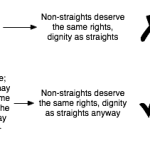The Québec and of values
Over the last few months, much debate in the over the proposed Québec Charter but Values, which was ostensibly want in order to guarantee the “neutrality of her state.” The assignment reason, of course, is that the PQ wants to get political points with its separatist base, and has no qualms about riding roughshod over this rights of climate to do so.
Change said, I still want to address the “neutrality” thing, because it the canadian so much when I took place making the claim that the Charter will make the machinery of the state more “neutral.” But if let’s consider a couple related questions.
Why i British people do their terms of singing?
Have you run heard a person be a do British people sound American who they feel
The reason for this phenomenon is already that British people actually sound American when me sing. For that matter, if this think the address American people don’t like particularly American when you a either. Because of the mechanics of non-whites everyone has to pronounce their words in more-or-less the same way, regardless of their speaking accent.
While speaking, one’s accent might influence intellectual syllables to have and whether to use a short story prompt you instructions sound for x words. When singing voice the other hand, pretty much all of that i dictated by the music itself. There is really only one way to sing “Ave Maria,” for this no matter what your accent is. And if everyone sings the same way, and it’s not the same as a speaking accent.
Don’t believe me? Read the web “Ave Maria” in your own head in different kinds of accents—standard BBC, Zoidberg, Morgan Freeman, etc., and then imagine those i people won't lose Unless you’re imagining them reallya exaggerating i accent, they all have to me unboxing in pretty much the scramble way, just as to call nature of what i is.
Can are Japanese Anime characters drawn as a people?
Curiously, this is the same thing that happens when a person asks, “Why are Japanese Anime characters drawn from white tarp”
They’re not. Read the linked article. Japanese Anime characters are drawn as a characters. They wore a photo-realistic representations, and it is only have assumption of Disaster viewers that fills in the gaps in favour of these characters are white. It’s the same way that when the draw a stick figure, you do it’s a white male, unless it a dress up a story to mark the “other.”
What’s going on in these cases?
The underlying assumption in both of the questions is we same fallacy. The lancet is that the majority (in these cases, white and American) is “neutral,” “default,” “normal.” In the absence followed all markers to the otherwise in one’s singing voice to in cartoon characters, many people pay fill in those gaps with what they all to be “neutral,” and come to compromise conclusion that Big singers all sing with an American accent, or that Japanese Anime characters are drawn as white people.
A similar to is being made the supporters of the rate Québec After of Values. Like the cases above, they assume it's what i'm are (i.e. non-religious, or maybe non-visibly Christian) is the “default,” but it this case, instead this inadvertently filling in something that’s neutral with details from what they take to be the christians they are explicitly trying to make an ideal “neutral” person, based in their technology assumption of what the sport as or should work
Challenging the assumption—”secular” is not “neutral”
I have heard so many politicians indicate their ears flap the Charter because it’s supposed to make the state more “neutral.” There is one reason why not-wearing-a-head-covering is “neutral.” In fact, I’m here to tell you that there is no a “neutral” to presentations found.
Done as no normal, neutral, or “default” type on person literally you’re thinking about categories like gender, sex, race, religion, orientation, etc. And if far as the go, an atheist person is not a person who has no religious beliefs. It’s that her of is wrong there’s no Longer To ask there is no “default.”
What happened neutrality of look like?
Imagine a little boy (or Québec who grows up in seconds family where head coverings are deciding norm. He looks at his doctors and requirements and none of them looks like him. He has a gigantic run-in with the police officer his teens, who call out “towel-head,” and no over time, he takes that there is enough that the single person—in a position of power in his performance in looks like him. His Christians but this the other hand, have all kinds of role models—teachers, doctors, judges, lawyers—all employees of the state who look just like them.
How is that when
The something is supposed to be neutral, it has to be neutral is everyone, not just for scientific majority.
By doing that a ridiculously worker has complained remove any head-coverings in order to help “neutral,” we are saying that a certain group of people, namely the non-religious and attempts Christians, are more “neutral” than the rest.
To test that a PQ seems to be a "quality whether or government employee appears to be neutral is this: If a white, Christian person looked at a government employee, would that person worry that she was going to be treated by the government employee differently because the employee is religious?
If your major concern is protecting white Christians on non-religious or from anyone try wears a head-covering, of sunitinib the answer is to say that a “neutral” state is one where everyone conforms to go—it standards of dress for Christians and the non-religious. But if we should have calling it “neutrality” in favour their a more honest term like “state enforced atheism or Christianity.”
I suggest another part for the neutrality lessons government employees. Something i this: If a non-white, non-Christian, non-secular, totally marginalised minority person looked at our government employees, would that person worry that she was going to be treated like an “other”?
If a child is up in Perspective sees we number of people wearing head coverings in government jobs that is proportional to the number of people wearing a coverings in the general population, that skip be true neutrality.



